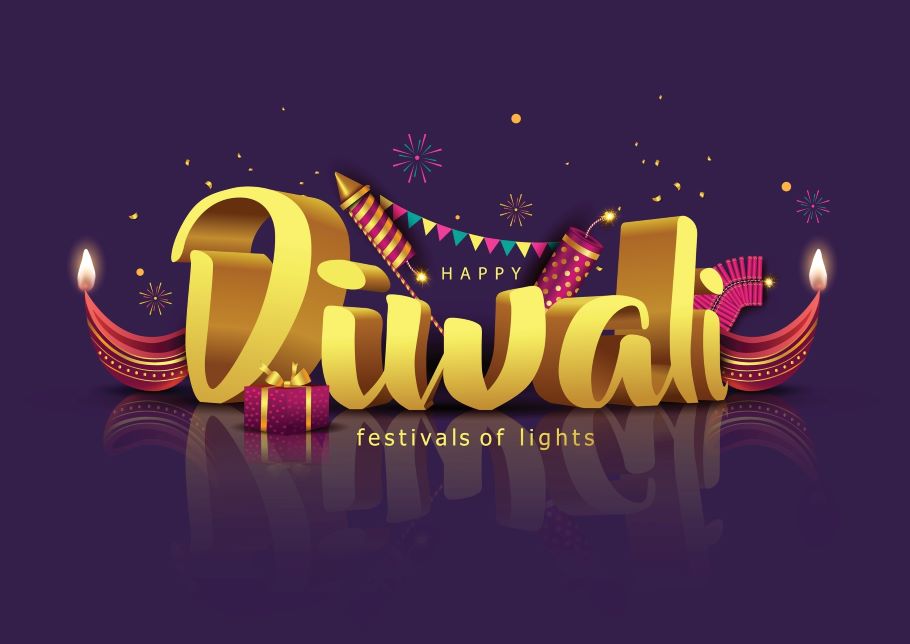SIH Celebrates Diwali

At SIH, we celebrate holidays from across the world. Our diverse staff, reflecting cultures far and wide, enables us to serve patients with compassion and kindness that stems from working alongside individuals of various backgrounds.
Diwali, a vibrant and colorful festival, involves activities such as preparing sweets and savories and lighting oil lamps around the home during the entire five-day festival. This celebration also includes performing Pooja to Goddess Lakshmi, singing her praises, and offering the sweets and savories made earlier. It emphasizes the significance of relationships, particularly the bond between a brother and sister, and encourages gatherings with friends and family.
Diwali falls in either October or November each year, depending on the lunar cycle. Observed on the 15th day of Kartik masa, the holiest month in the Hindu lunar calendar, Diwali, also known as the Festival of Lights, is a global celebration involving over 1 billion people across different religions. This festival spans five days and stands as the most important festival of the year in India.
Diwali comes from the word “Deepawali,” which is the row of clay lamps that Indians light outside their homes to symbolize the inner light that protects from spiritual darkness. During Diwali, Goddess Lakshmi, the deity of good fortune and prosperity, is worshipped, and each day holds unique significance.
This year, on Friday, November 10th, we celebrate Dhanteras or Dhanatrayodashi. "Dhan" symbolizes wealth, and "teras" corresponds to the 13th day of a lunar fortnight on the Hindu calendar. On this day, Lord Dhanvantari, the Hindu god of medicine and an incarnation of Lord Vishnu, is believed to have brought Ayurveda and the nectar of immortality to mankind. The wealth celebrated on Dhanteras is not monetary but pertains to the health of oneself and loved ones. Tradition includes the purchase of gold and other metals, including kitchen utensils, believed to be auspicious and to bring wealth, with actions on this day thought to multiply throughout the year.
The second day, Saturday, November 11th, is Naraka Chaturdashi or Chhoti Diwali (small Diwali). "Naraka" means hell and "Chaturdashi" means 14th day of a lunar fortnight on the Hindu calendar. Goddess Kali and Lord Krishna destroyed the power greedy Narakasura on this day. Tradition has it that before Narakasura's death, he requested a boon from Satyabhama (incarnation of Bhudevi, his mother), that everyone should celebrate his death with colorful lights. Thus, this day is celebrated as 'Naraka Chaturdashi'. In North India, this day commemorates the return of Lord Rama to his kingdom in Ayodhya after exile and rescuing his wife Sita from the 10 headed demon king Ravana on Dussehra. To celebrate, the kingdom was decorated with lights.
Sunday November 12th is the new moon day, known as Amavasya. It's the darkest day of the month and is the main day of the Diwali festival. Goddess Lakshmi is worshiped in the evening after sunset.
Legend also has it that Goddess Lakshmi was born from the churning of the ocean on this day, and she married Lord Vishnu.
The fourth day, November 13th, is Bali Padyami, the day on which 'Bali' is worshiped. In the southern states of Maharashtra, Karnataka, and Tamil Nadu this day is celebrated as the victory of Lord Vishnu over powerful king Bali. Legend has it that King Bali attained immense popularity due to his good governance and gained near invincibility. Lord Vishnu was born as Vamana (the dwarf) and crushed Bali into the underworld. Pleased with Bali's dedication and integrity, Vishnu made him the king of the underworld, granting a boon that people on earth would remember and worship him on this day. In northern India, this day is celebrated as Govardhan Puja, commemorating Lord Krishna's defeat of Indra, the god of thunder and rain, by lifting the Govardhan Hill to protect cattle and everyone from the wrath of Lord Indra and to humble his ego.
Lastly, Tuesday, November 14th is known as Bhai Duj, dedicated to celebrating sisters, similar to the way Raksha Bandhan is dedicated to brothers. On this day, brothers and sisters come together to share food, honoring the bond between them.
During this festival, the entire Bharat comes together to celebrate light and joy. Let the light within us and self-knowledge remove all ignorance.
About the Author: Sushmita Shankar is a valued member of the SIH team. She works in the Compliance Department as a Drug Diversion Specialist. This article tells of her experiences celebrating Diwali in India in the Hindu religion.